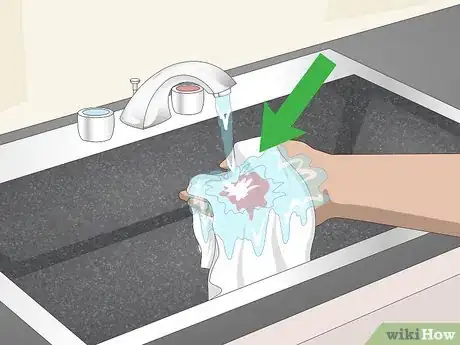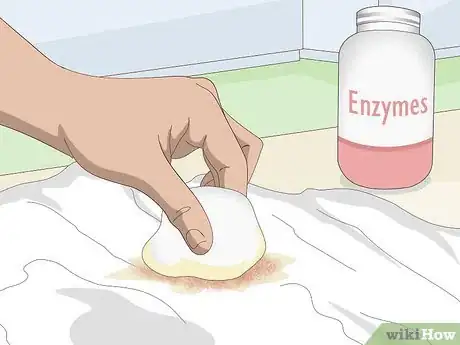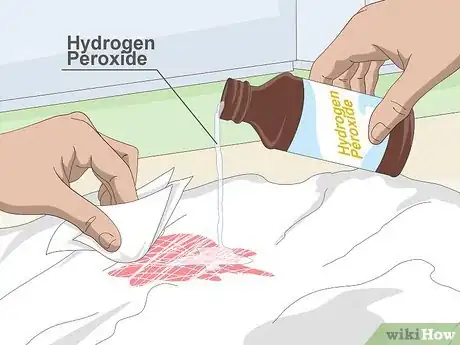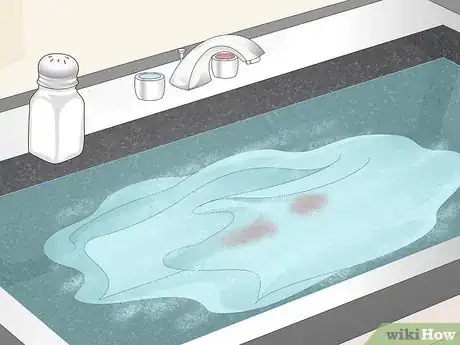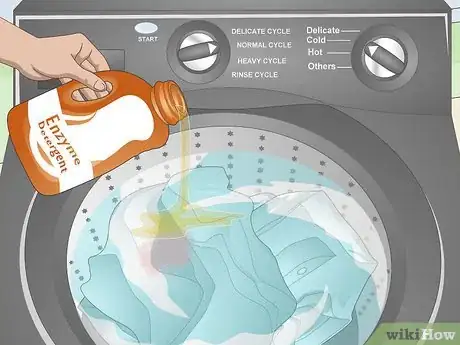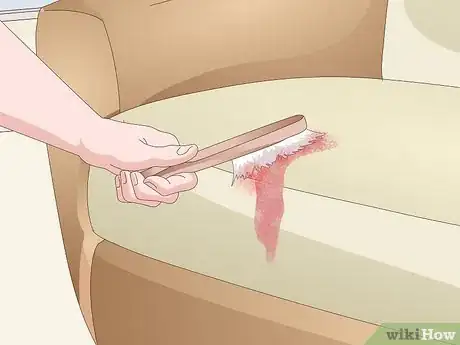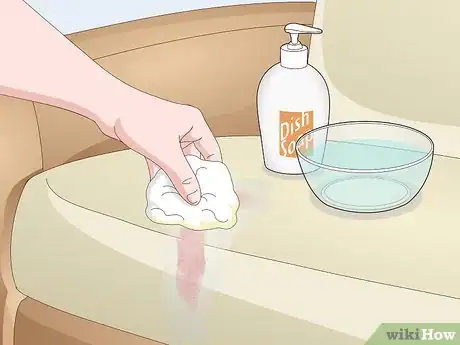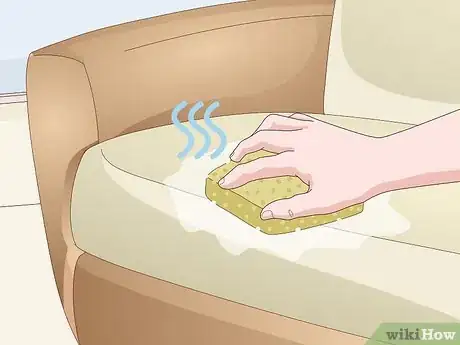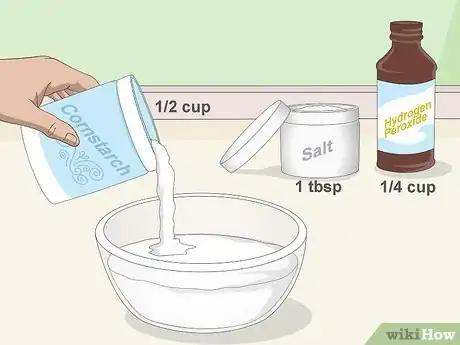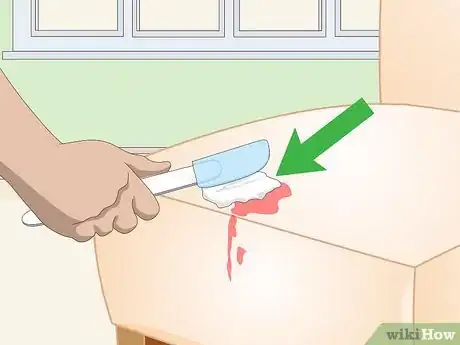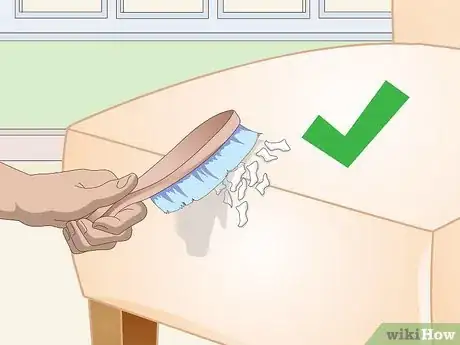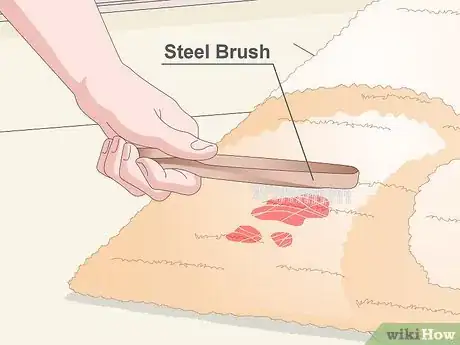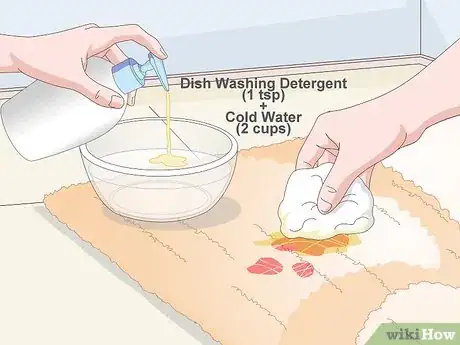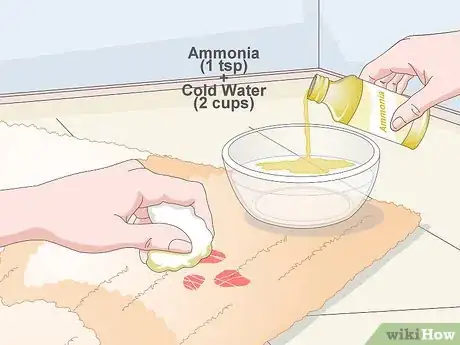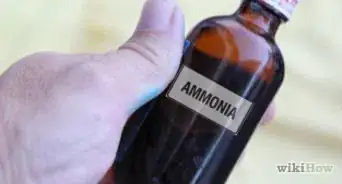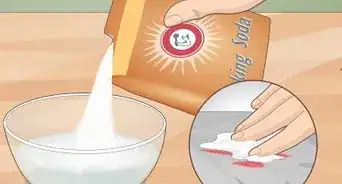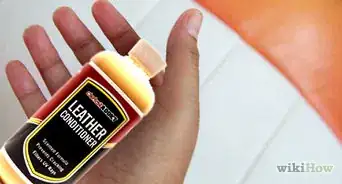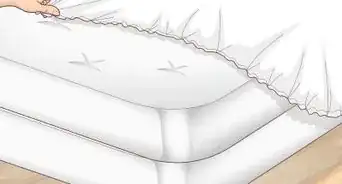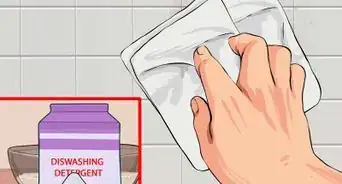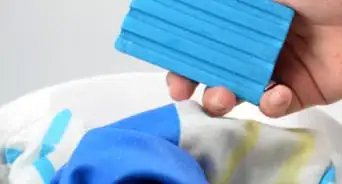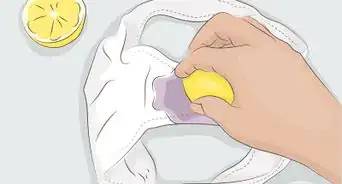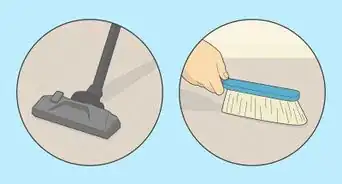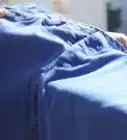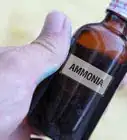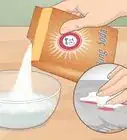This article was co-authored by Elias Weston. Elias Weston is a Cleaning Specialist and the Founder of Seatown Cleaners in Seattle, Washington. Elias specializes in helping clients find cleaning services with instant booking and flexible pricing. Seatown Cleaners offers standard, deep, and move-in/out cleaning services using green products and cleaning techniques. Every cleaner is thoroughly vetted and every cleaning is backed by a 100% money-back guarantee.
There are 8 references cited in this article, which can be found at the bottom of the page.
This article has been viewed 18,906 times.
To clean dried blood, always use cold water. Pre-treat clothing stains with an enzymatic cleaner, hydrogen peroxide, or salt, then launder the item with an enzyme detergent. To clean upholstery, blot stains with a detergent mixture. Use a cornstarch-based paste to draw out dried blood from a mattress. Remove dried blood from carpeting using a steel brush and dish washing liquid, or ammonia.
Steps
Removing Dried Blood from Fabric
-
1Run the stain under cold water. Place the stained item in a sink or bath tub. Rinse through the back of the stain with cold water. Avoid rubbing the fabric, as it can cause blood stains to set into fabric.
-
2Pre-treat stains with an enzyme solution. Using an enzymatic cleaner to treat blood stains is a good choice, as enzymes are proteins that have been engineered to break down other proteins. Purchase an enzyme-based pre-treatment spray, or make an enzyme soak using 4 cups of cold water and 1 tbsp. of enzyme detergent. Let the treatment set in for 30 minutes, then rinse with cold water.
- Avoid using enzymes on wool or silk items.[1]
Advertisement -
3Treat light-colored clothing with hydrogen peroxide. Hydrogen peroxide is an effective tool for removing blood stains, but it is better to use on light-colored clothing as it may fade or discolor fabric. Test a small, hidden corner of the fabric by adding a drop of hydrogen peroxide and letting it sit for several minutes. If no discoloration is visible on the test spot, apply a few drops of hydrogen peroxide to the stain and blot it with a clean cloth.[2]
- Reapply the hydrogen peroxide as needed until the stain disappears.
-
4Use salt to treat the stain. Fill your kitchen sink 3/4 full with cold water. Add a cup of table salt to the water and soak the stained item in the water for an hour. Rinse the stained item and launder it as usual.
- Alternatively, make a paste of salt and water, apply it directly to the stain, and let it sit for an hour.
-
5Wash with an enzyme detergent. After pre-treating, launder the stained item as usual with a detergent that contains enzymes (which will usually be indicated on the bottle). Most environmentally friendly brands of detergent use enzymes because they are biodegradable. Be sure that the stain has lifted during pre-treating before washing it, as it is likely to set in permanently after being laundered and dried.[3]
Removing Dried Blood from Upholstery
-
1Brush the stain. Brush the surface of the stain with a small, dry scrub brush (or an old toothbrush) to remove surface deposits.[4] Brush gently and evenly to loosen and remove loose flakes of dried blood or dust and dirt that may have dried to the top of the blood stain. Wipe away the debris with a paper towel.[5]
-
2Blot the stain with a cleaning solution. In a small bowl, mix one tablespoon of dish washing liquid with two cups (500 ml) of cold water. Dip a clean cloth into the mixture and dab the stain until the liquid is absorbed. Continue until the stain is removed.[6]
- You can also add 1/4 cup (60 g) of baking soda to make the cleaner more powerful.[7]
-
3Rinse and dry the treated spot. Rinse the treated spot by dabbing it with a clean, wet sponge. Using a clean towel or cloth, gently blot the treated spot to remove as much excess water as possible. Leave the upholstery untouched to air dry.[8]
Getting Dried Blood out of a Mattress
-
1Make a cornstarch paste. If you have a dried blood stain on your mattress, apply a cornstarch paste to the surface to draw it out of the fabric. In a bowl, mix half a cup (250 ml) of cornstarch, one tablespoon of salt, and one quarter of a cup (125 ml) of hydrogen peroxide. Test the mixture on a small, hidden portion of your upholstery to see if discoloration occurs before using.
-
2Apply the paste. Using a small spatula or spoon, apply a thick layer of the paste to the stain. Let the paste sit for 3-4 hours (or overnight) until it dries into a crust. If you have pets or children, do not leave the treated area unsupervised.
-
3Remove the mixture. When the mixture has dried, gently chip off as much of it as you can with a blunt spoon. Using a brush and dustpan, sweep away fragments of the dried mixture. Use a vacuum with a hose attachment to remove remaining bits of the cornstarch mixture that may have been embedded into the fabric.
Removing Dried Blood from Carpeting
-
1Scrub the stain with a steel brush. Wet a steel brush (available at hardware stores). Brush the stained area for 1-2 minutes. This movement should remove at least some of the coagulated, dried blood from the surface of the carpet fibers.[9]
-
2Treat the stain with a detergent solution. In a bowl, mix one tablespoon of dish washing liquid with two cups (500 ml) of cold water. Dip a clean cloth into the mixture and dab the stain. Blot the stain repeatedly until it is removed, rinsing the cloth with cold water when necessary.[10]
- For best results, use a detergent with enzymes.
-
3Use ammonia on stubborn stains. If the dried blood stain remains, treat it with a mixture 1/2 cup (125 ml) of cold water and one tablespoon of ammonia. Dip a clean sponge in the solution and dab the stain, working inwards to prevent it from spreading outwards to other areas of the carpet. Repeat until the stain is removed and then dab the area with a clean, wet sponge.[11]
References
- ↑ http://www.getridofthings.com/household/get-rid-of-blood-stains/
- ↑ http://www.today.com/home/how-remove-blood-stains-clothes-furniture-t104470
- ↑ http://www.getridofthings.com/household/get-rid-of-blood-stains/
- ↑ Elias Weston. Cleaning Specialist. Expert Interview. 30 January 2021.
- ↑ http://www.goodhousekeeping.com/home/cleaning/tips/a16073/remove-blood-stains/
- ↑ http://web.extension.illinois.edu/stain/staindetail.cfm?ID=5
- ↑ Elias Weston. Cleaning Specialist. Expert Interview. 30 January 2021.
- ↑ http://www.goodhousekeeping.com/home/cleaning/tips/a16073/remove-blood-stains/
- ↑ http://spotremoval.coit.com/how-to-get-blood-out-of-carpet
